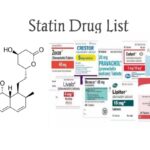Bempedoic Acid Cuts Cardiovascular Events In Statin-Intolerant Patients

Bempedoic acid is an oral, once-daily, first-in-class drug being developed for the treatment of hyperlipidemia. Bempedoic acid is a novel nonstatin drug that works by inhibiting cholesterol biosynthesis in the same pathway as statins. It is administered as a prodrug and is only converted to an active drug in the liver and not the muscles.
According to new research, this new approach to lowering cholesterol with the use of bempedoic acid (Nexletol, Esperion) has brought about a significant reduction in cardiovascular events in patients intolerant to statins in the large phase 3 placebo-controlled CLEAR Outcomes trial.
The drug lowered LDL cholesterol by 21% in the study and reduced the composite primary endpoint, including cardiovascular death, myocardial infarction (MI), stroke, or coronary revascularization, by 13%; MI was reduced by 23% and coronary revascularization, by 19%.
The drug was also well-tolerated in the mixed population of primary and secondary prevention patients unable or unwilling to take statins.
“These findings establish bempedoic acid as an effective approach to reduce major cardiovascular events in statin-intolerant patients,” study chair, Steve Nissen, MD, Cleveland Clinic, Ohio, concluded.
Nissen presented the CLEAR Outcomes trial on March 4 at the American College of Cardiology (ACC) Scientific Session/World Congress of Cardiology (WCC) 2023.
The study was simultaneously published online in the New England Journal of Medicine (NEJM). Topline results were previously reported in December 2022.
Nissen pointed out that while in the current study bempedoic acid was studied as monotherapy, he believes the drug will mainly be used in clinical practice in combination with ezetimibe, a combination shown to reduce LDL by 38%. “I think this is how it will be used in clinical practice. So, we can get an almost 40% LDL reduction — that’s about the same as 40 mg simvastatin or 20 mg atorvastatin — without giving a statin. And I think that’s where I see the potential of this therapy,” he commented.
Nissen described statin intolerance as “a vexing problem” that prevents many patients from achieving LDL cholesterol levels associated with cardiovascular benefits.
He explained that bempedoic acid, an adenosine triphosphate citrate lyase inhibitor, inhibits hepatic cholesterol synthesis upstream of hydroxymethylglutaryl coenzyme A reductase, the enzyme inhibited by statins. Bempedoic acid is a pro-drug activated in the liver, but not in peripheral tissues, resulting in a low incidence of muscle-related adverse events. Although bempedoic acid is approved for lowering LDL cholesterol, this is the first trial to assess its effects on cardiovascular outcomes.
The CLEAR Outcomes trial included 13,970 patients (48% women) from 32 countries who were unable or unwilling to take statins owing to unacceptable adverse effects and who had, or were at high risk for, cardiovascular disease. They were randomly assigned to oral bempedoic acid, 180 mg daily, or placebo.
The mean LDL cholesterol level at baseline was 139 mg/dL in both groups, and after 6 months, the reduction in the level was greater with bempedoic acid than with placebo by 29.2 mg/dL (a 21.1% reduction).
The drug was also associated with a 22% reduction in high-sensitivity C-reactive protein.





